I wrote this piece a year ago at the end of an exhausting story about the end of a species. I was angry and despondent. I wish I could say that a year has changed my perspective. Scientists have spotted a surprising six individuals more during their expedition to the Upper Gulf this year. But nothing substantive has changed in the politics of the region and my hopes are dim.
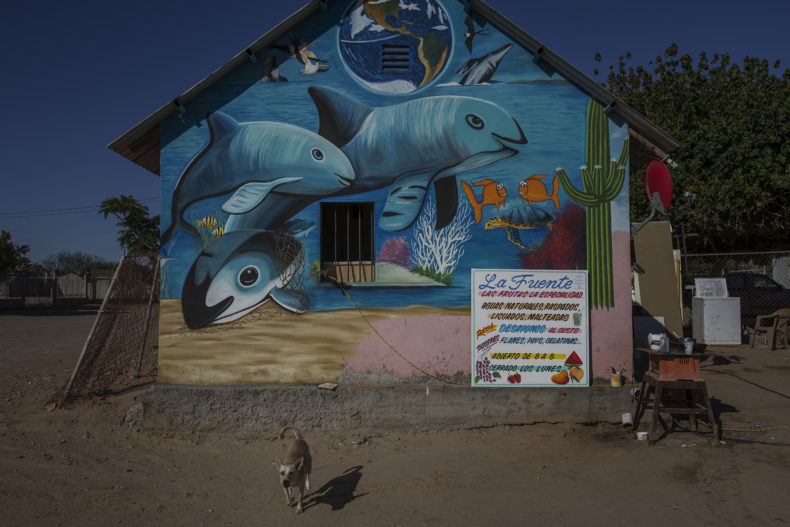 Saturday was the day I finally gave up. The last hope for the vaquita marina, the world’s smallest and most endangered cetacean, is gone. On Saturday, biologists working in the Upper Gulf of California announced that the latest animal they had captured in an effort to save the species had died in captivity.
Saturday was the day I finally gave up. The last hope for the vaquita marina, the world’s smallest and most endangered cetacean, is gone. On Saturday, biologists working in the Upper Gulf of California announced that the latest animal they had captured in an effort to save the species had died in captivity.
For the first half of 2017, I was knee deep in a story I’ve been following since I got to Mexico six years ago. In summary, an animal that had found itself on the wrong side of rampant poaching practices is all but wiped out and the last option is a Hail Mary plan to round them up into captive pens and hold them until such time as humans stop sucking at ocean stewardship. (For a full review of the vaquita’s tragic tale, I really encourage you to read the story.)
But there was always a problem with this strategy – no one had ever tried to catch one before. It was possible they wouldn’t go quietly into pens.
“If captivity fails, then, well, we tried,” NOAA biologist Barbara Taylor told me in the spring. “It’s game over.”
After Saturday, I think it’s game over. The vaquita doesn’t do captivity. The first animal caught by biologists got so stressed out that it had to be released. The second died within hours. We have now officially done more harm than good in our attempts to save the vaquita. In fact, this whole effort has been one long lesson in throwing the porpoise out with the bathwater. From the beginning, it feels like we’ve tried to help the vaquita with the best of intentions and have only made things worse.
From the start, I was probably the wrong person to write the story. My background is in biology and as a scientist I even worked in cetacean research. So when I talked to biologists while reporting this story, I found I agreed with all of the solutions they have been chasing since the early 90s. Stronger laws protecting the animal? More enforcement? Yeah! We have to crack down hard on this community that is killing harmless porpoises. Force the community help us preserve them.
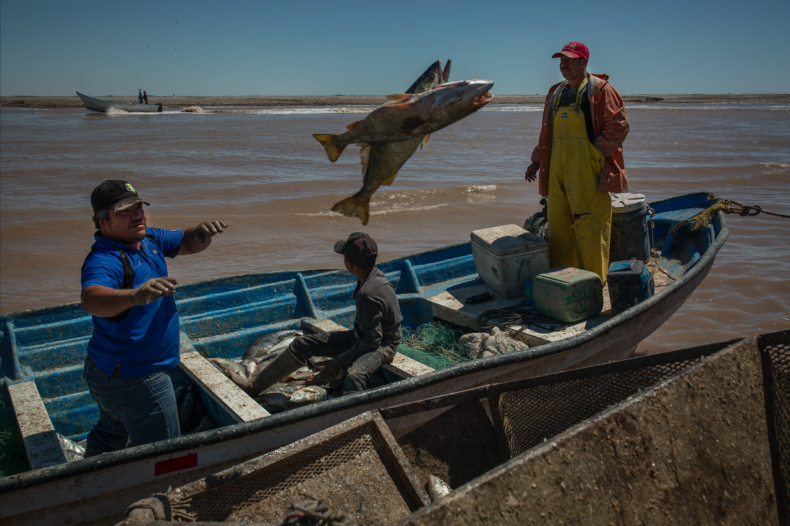 My wife, on the other hand, is a social scientist who works on development here in Mexico. When we first started dating, I used to tease her for being a soft little scientist in her soft little science. I now understand that helping a community pull itself out of poverty is more complex than brain surgery or quantum physics.
My wife, on the other hand, is a social scientist who works on development here in Mexico. When we first started dating, I used to tease her for being a soft little scientist in her soft little science. I now understand that helping a community pull itself out of poverty is more complex than brain surgery or quantum physics.
There is no magic equation for community organizing but she begins by understanding that “the community” isn’t some monolithic creature that thinks as a unit. There are complex politics and power dynamics at work that can either aid or destroy all her efforts.
I now understand why the vaquita is going extinct. They sent too many people like me into the region and not enough like her.
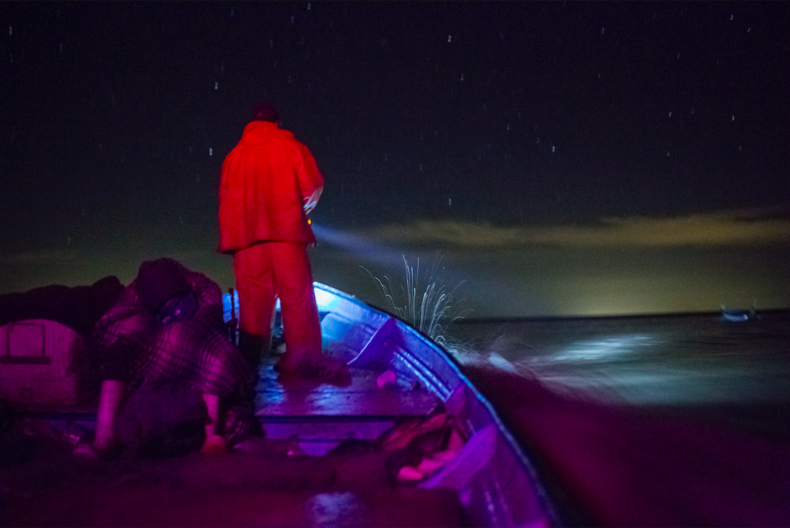 This is not a condemnation of any particular group. Everyone that I spoke to while reporting the story was genuinely passionate about their work and trying to help prevent an incredible little creature from disappearing from the Earth. But it just seemed like none of them ever had any idea how to do it.
This is not a condemnation of any particular group. Everyone that I spoke to while reporting the story was genuinely passionate about their work and trying to help prevent an incredible little creature from disappearing from the Earth. But it just seemed like none of them ever had any idea how to do it.
To save the vaquita, we needed to create opportunities and incentives for local people not to poach totaba (the most valuable fish in the area, which just happens to be the same size as the vaquita).
It was a job for my wife’s kind of people. My kind of people are good at counting fish and understanding ecosystems. Her people understand people. They might start with a complex “power analysis” of the community. Who pulls the strings? Who moves opinion? What do they want? And how can they screw us? To my knowledge, this kind of analysis has never been done in vaquita country.
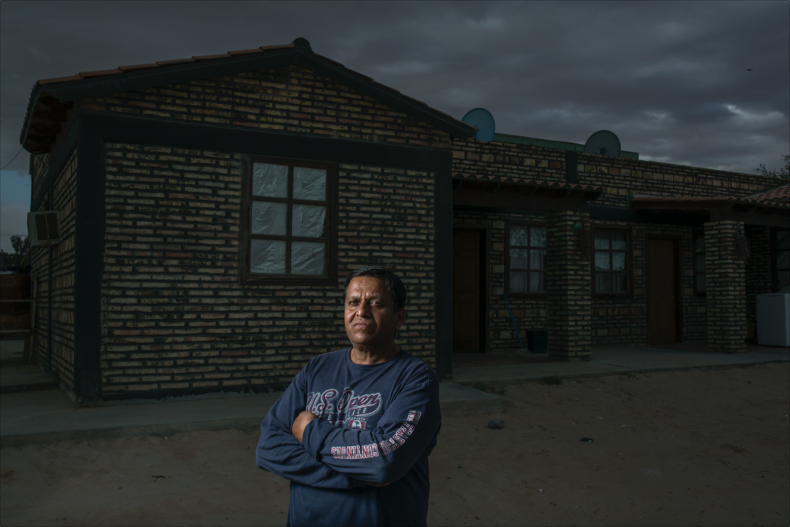
Then they might do another analysis to understand what the opportunities are for economic development in the area – and where a small push might speed it up. In the Upper Gulf there was a government effort in 2007 to create ecotourism jobs without any idea if there was demand for it. Turns out there’s not a whole lot of people clamoring to vacation in fishing villages on the banks of chocolate-colored water. But what about the dozens of other industries that might have helped people avoid poaching? Again, no one did that work.
And there are tons of other tricks development experts use today, none of which are familiar to people like me. This is not Monday morning quarterbacking, it’s more like a warning. The global north doesn’t do extinction anymore, we just force other countries to do it in order to get fresh shrimp cocktails in Las Vegas or medicinal swim bladders in Beijing. Extinction in the 21st Century looks to be ever more centered on the developing world, which will require fewer fish nerds and more people nerds.
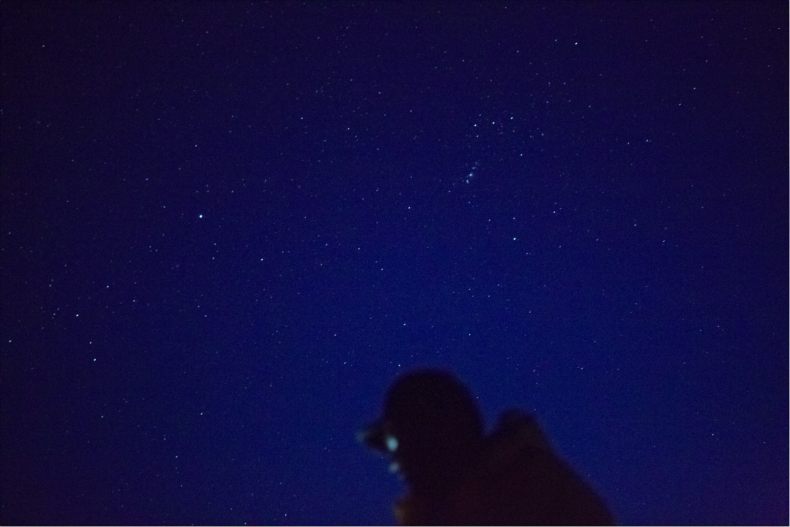 If we don’t learn from the vaquita, we will do this again. There is a saying in conservation: Fool us once, shame on us. Fool us twice, no really, shame on us. Fool us three times and SERIOUSLY ARE WE STILL MAKING THE SAME DAMN MISTAKES?
If we don’t learn from the vaquita, we will do this again. There is a saying in conservation: Fool us once, shame on us. Fool us twice, no really, shame on us. Fool us three times and SERIOUSLY ARE WE STILL MAKING THE SAME DAMN MISTAKES?
It’s time for us to realize that conservation isn’t about biology anymore. If you are standing on the shore of some poor little town, looking out over the water trying to figure out how to save some inspiring ocean species, just stop and turn around 180 degrees. That’s where your work is.
That’s my message for the future but it doesn’t help me now, this week. This week I’m in mourning. In my story, I predicted that the vaquita was way past saving but down deep I really wanted to be wrong. I prayed the biologists in the Upper Gulf would pull off the impossible. The press has descended on the Upper Gulf to watch the Hail Mary pass in action. But not me. I just couldn’t watch this animal who now feels like a friend lose its last hope.
And that burns. The vaquita never did anything to us humans. It never asked to get caught in our nets or to have the Colorado River sucked dry or to have some of the world’s deadliest drug cartels move in to take over poaching in the area. It didn’t even want to be found in the first place.
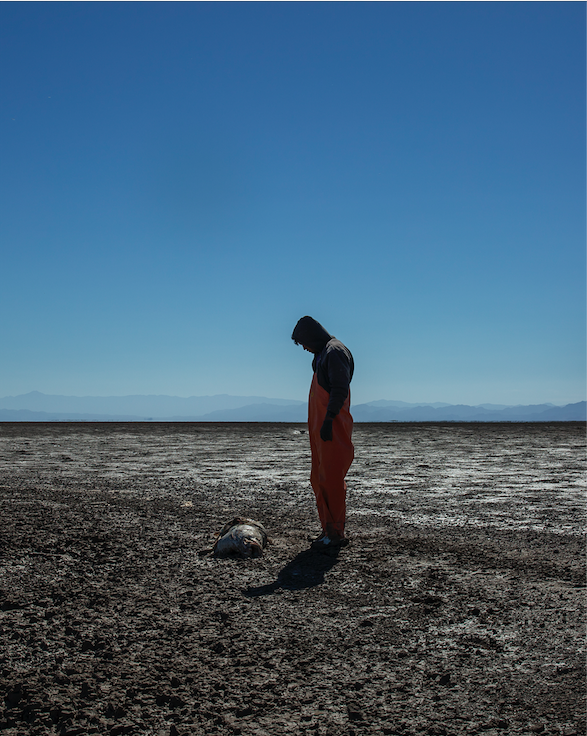 All it ever wanted was to be left the hell alone to forage on the bottom of its murky sea. It hid from biologists for decades, so well that some locals still don’t believe it exists. And maybe that was its downfall. It couldn’t avoid our nets like its more social dolphin cousins. And when we finally tried to bring them into forced sanctuary, when they finally had to look us in the face, it killed them.
All it ever wanted was to be left the hell alone to forage on the bottom of its murky sea. It hid from biologists for decades, so well that some locals still don’t believe it exists. And maybe that was its downfall. It couldn’t avoid our nets like its more social dolphin cousins. And when we finally tried to bring them into forced sanctuary, when they finally had to look us in the face, it killed them.
But what burns me most is that we did this. All of us. China, with your ridiculous need for worthless animal parts for ineffective medicine, you did this. United States, with your thirst for fresh water and your crappy attitude toward your southern neighbor, you did this. And Mexico, with your paralyzing corruption and your complete inability to enforce your laws, you did this.
Now all of you go home, back to your lives. To binge-watching Stranger Things or Trump’s latest outrage. I just want to sit here for a while and cry for the good friend that I never got to meet. And never will.
Photos by the talented Christian Rodriguez, Instagram: @christian_foto. To read another essay about the vaquita and to see stunning photography by Dominic Bracco, check out our project with the Pulitzer Center on Crisis Reporting.